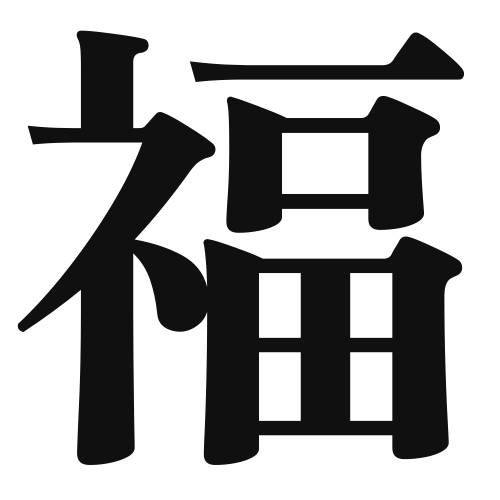1. Overview of Meaning
The kanji “福” (fuku) means “blessing,” “good fortune,” or “happiness.” It represents the idea of positive outcomes and prosperity in life.
2. Formation and Radicals
The kanji “福” is a compound character that combines elements to convey its meaning. It is made up of the radical 示 (shimesu), which relates to divinity or spiritual matters, and the phonetic component 福 itself, which suggests the sound and meaning associated with fortune.
3. Examples of Usage
Common words and phrases that include “福” are:
- 幸福 (kōfuku) – happiness
- 福祉 (fukushi) – welfare
- 福袋 (fukubukuro) – lucky bag (a bag filled with unknown items sold at a discount)
Example sentences in daily conversation:
- 「彼は福をもたらす人です。」(Kare wa fuku o motarasu hito desu.) – “He is a person who brings blessings.”
- 「新年に福を祈ります。」(Shinnen ni fuku o inorimasu.) – “I pray for good fortune in the New Year.”
4. Synonyms and Antonyms
Similar kanji with related meanings include:
- 幸 (sachi) – happiness, often used in a more personal context.
- 吉 (kichi) – good luck, often associated with auspicious events.
Antonyms include:
- 不幸 (fukō) – misfortune or unhappiness.
5. Cultural and Historical Background
The concept of “福” is deeply rooted in Japanese culture, often associated with Shinto and Buddhist beliefs. It is common to see “福” used in decorations during the New Year, symbolizing the hope for a prosperous year ahead.
Proverbs and idioms that include “福” are:
- 福は内、鬼は外 (Fuku wa uchi, oni wa soto) – “Fortune in, demons out,” a saying used during Setsubun to drive away evil spirits and welcome good fortune.
